Toyota bZ4X vs Volvo EC40 - Differences and prices compared
Compare performance (343 HP vs 442 HP), boot space and price (36800 £ vs 46600 £ ) at a glance. Find out which car is the better choice for you – Toyota bZ4X or Volvo EC40?
Costs and Efficiency:
Price and efficiency are key factors when choosing a car – and this is often where the real differences emerge.
Toyota bZ4X has a noticeable advantage in terms of price – it starts at 36800 £ , while the Volvo EC40 costs 46600 £ . That’s a price difference of around 9772 £.
In terms of energy consumption, the advantage goes to the Toyota bZ4X: with 13.50 kWh per 100 km, it’s a bit more efficient than the Volvo EC40 with 16.20 kWh. That’s a difference of about 2.70 kWh.
As for electric range, the Volvo EC40 performs hardly perceptible better – achieving up to 584 km, about 16 km more than the Toyota bZ4X.
Engine and Performance:
Power, torque and acceleration say a lot about how a car feels on the road. This is where you see which model delivers more driving dynamics.
When it comes to engine power, the Volvo EC40 has a noticeable edge – offering 442 HP compared to 343 HP. That’s roughly 99 HP more horsepower.
In acceleration from 0 to 100 km/h, the Volvo EC40 is slightly quicker – completing the sprint in 4.60 s, while the Toyota bZ4X takes 5.10 s. That’s about 0.50 s faster.
There’s also a difference in torque: Volvo EC40 pulls decisively stronger with 670 Nm compared to 338 Nm. That’s about 332 Nm difference.
Space and Everyday Use:
Beyond pure performance, interior space and usability matter most in daily life. This is where you see which car is more practical and versatile.
Both vehicles offer seating for 5 people.
In curb weight, Toyota bZ4X is barely noticeable lighter – 2014 kg compared to 2065 kg. The difference is around 51 kg.
In terms of boot space, the Toyota bZ4X offers to a small extent more room – 452 L compared to 404 L. That’s a difference of about 48 L.
When it comes to payload, Toyota bZ4X hardly perceptible takes the win – 451 kg compared to 435 kg. That’s a difference of about 16 kg.
Who wins the race in the data check?
The Volvo EC40 stands out in the key areas in the objective data comparison.
This result only shows which model scores more points on paper – not which of the two cars feels right for you.
Costs and Consumption
View detailed analysis
Engine and Performance
View detailed analysis
Dimensions and Body
View detailed analysis
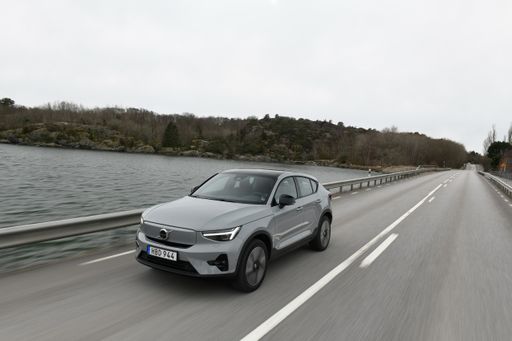
Volvo EC40
Toyota bZ4X
The Toyota bZ4X is a fresh, roomy electric crossover that pairs Toyota’s trademark reliability with bold, angular styling and a cabin designed for everyday comfort. It may not chase headlines like some flashier rivals, but for buyers who want sensible electric motoring with practical packaging and a relaxed, confident ride, it’s an easy, pleasant choice.
details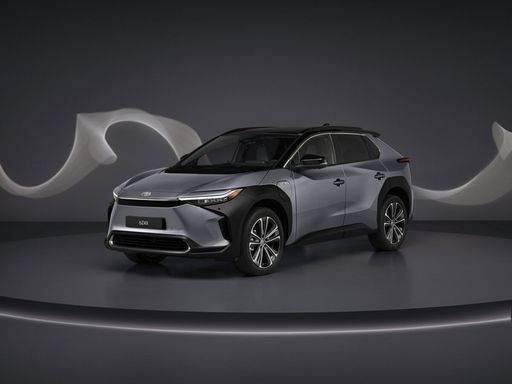
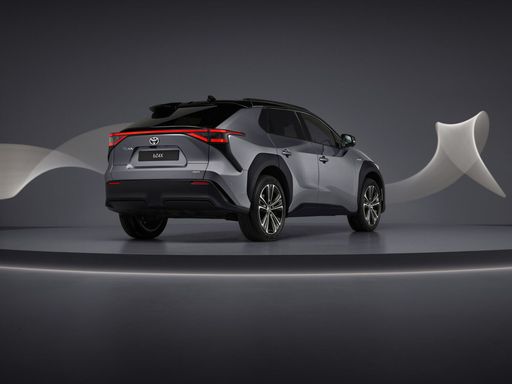
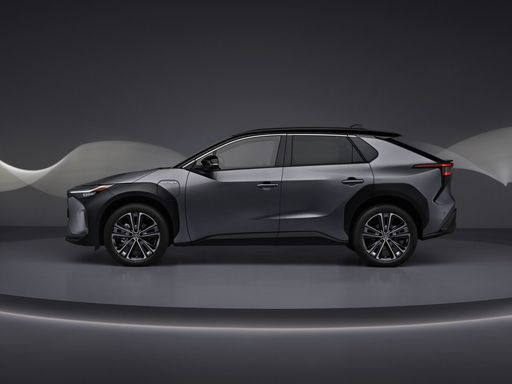
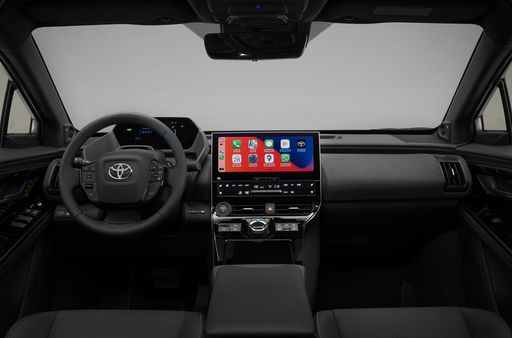
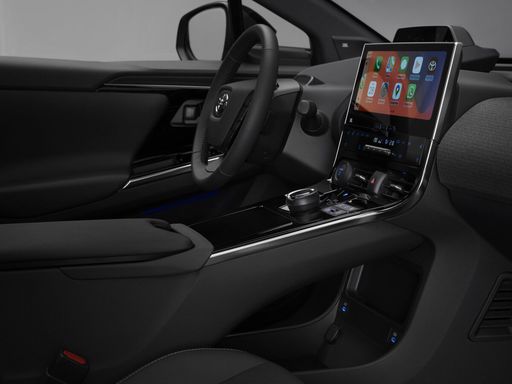
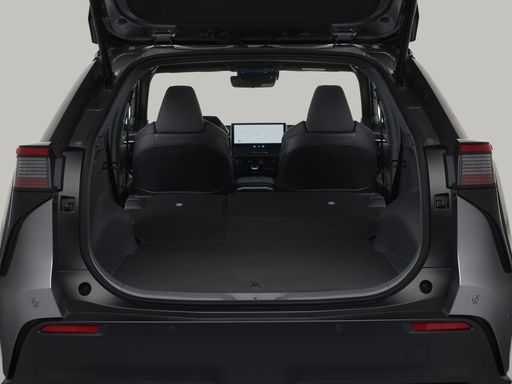
Volvo EC40
The Volvo EC40 feels like a polished slice of Scandinavian calm on wheels, blending minimalist design with a cocoon-like interior that makes everyday driving surprisingly serene. It’s an electric compact that puts safety and comfort front and center, while still injecting enough personality and tech-savvy charm to keep city buyers smiling.
details
Costs and Consumption |
|
|---|---|
|
Price
36800 - 48000 £
|
Price
46600 - 59000 £
|
|
Consumption L/100km
-
|
Consumption L/100km
-
|
|
Consumption kWh/100km
13.5 - 14.1 kWh
|
Consumption kWh/100km
16.2 - 17.3 kWh
|
|
Electric Range
444 - 568 km
|
Electric Range
488 - 584 km
|
|
Battery Capacity
-
|
Battery Capacity
67 - 79 kWh
|
|
co2
0 g/km
|
co2
0 g/km
|
|
Fuel tank capacity
-
|
Fuel tank capacity
-
|
Dimensions and Body |
|
|---|---|
|
Body Type
SUV
|
Body Type
SUV
|
|
Seats
5
|
Seats
5
|
|
Doors
-
|
Doors
5
|
|
Curb weight
2014 - 2180 kg
|
Curb weight
2065 - 2185 kg
|
|
Trunk capacity
452 L
|
Trunk capacity
404 L
|
|
Length
-
|
Length
4440 mm
|
|
Width
1860 mm
|
Width
1873 mm
|
|
Height
-
|
Height
1591 mm
|
|
Max trunk capacity
-
|
Max trunk capacity
1196 L
|
|
Payload
375 - 451 kg
|
Payload
395 - 435 kg
|
Engine and Performance |
|
|---|---|
|
Engine Type
Electric
|
Engine Type
Electric
|
|
Transmission
Automatic
|
Transmission
Automatic
|
|
Transmission Detail
Reduction Gearbox
|
Transmission Detail
Reduction Gearbox
|
|
Drive Type
Front-Wheel Drive, All-Wheel Drive
|
Drive Type
Rear-Wheel Drive, All-Wheel Drive
|
|
Power HP
167 - 343 HP
|
Power HP
238 - 442 HP
|
|
Acceleration 0-100km/h
5.1 - 8.6 s
|
Acceleration 0-100km/h
4.6 - 7.3 s
|
|
Max Speed
-
|
Max Speed
180 km/h
|
|
Torque
268 - 338 Nm
|
Torque
420 - 670 Nm
|
|
Number of Cylinders
-
|
Number of Cylinders
-
|
|
Power kW
123 - 252 kW
|
Power kW
175 - 325 kW
|
|
Engine capacity
-
|
Engine capacity
-
|
General |
|
|---|---|
|
Model Year
2025
|
Model Year
2024
|
|
CO2 Efficiency Class
A
|
CO2 Efficiency Class
A
|
|
Brand
Toyota
|
Brand
Volvo
|
Is the Toyota bZ4X offered with different drivetrains?
The Toyota bZ4X is offered with Front-Wheel Drive or All-Wheel Drive.
